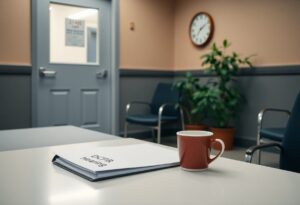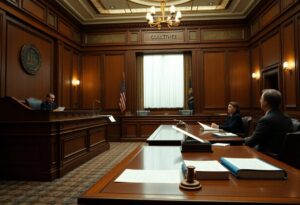How Can Parents Appeal an Unfair MA DCF Decision?
Appealing MA DCF Decisions can feel overwhelming for parents. Katherine, a loving mother, suddenly receives notice from the Department of Children and Families (DCF) that they have supported allegations of neglect and now threatening to take her children away. She feels helpless and overwhelmed by the accusations, knowing they are false but unsure how to fight back. Her case is just one of many where parents face the harsh and sometimes unfair actions of DCF, leading to the devastating removal of their children from their home.
Katherine’s experience is not unique. Many parents are caught in a similar nightmare, dealing with DCF’s demands and feeling that their rights have been trampled. They are left confused, angry, and desperate to protect their families, but navigating the complex appeals process seems impossible without guidance.
This article will walk you through every step of appealing an unfair MA DCF decision, providing the information you need to fight for your family’s rights. Keep reading to learn how you can challenge DCF and safeguard your children’s future.
Steps for Appealing MA DCF Decisions
Appealing the decision by DCF involves several key steps. Knowing each one can help you prepare and increase your chances of success. This process ensures that your case is reviewed
fairly and that any errors or misjudgments are addressed. The main steps include requesting a fair hearing, gathering necessary information, and preparing for the hearing.
How Do You Request a Fair Hearing?
The first step is to request a fair hearing within 30 days of the decision. Write a letter to the DCF Fair Hearing Office with your details, your child’s name, the DCF office involved, and a description of the decision you are appealing. Make sure to send your request promptly, as missing this deadline can jeopardize your chance to appeal.
What Information Should Be Included in Your Fair Hearing Request?
Make sure your request includes all the needed information. Include your contact details, child name, and the decision details. If you need an interpreter, mention the language you speak. Be clear and concise in your description to avoid any misunderstandings.
Here’s what you need:
- Your full name, address, and contact information.
- Your child’s name and DCF office handling the case.
- A clear description of the decision you are appealing.
- The date of the decision.
- Request an interpreter, if necessary, to specify the language.
How Can You Prepare for a DCF Fair Hearing?
Preparation is crucial for a successful appeal. Gathering the right documents and evidence can make a significant difference. Being well-prepared ensures that all relevant information is presented clearly and accurately.
What Documents and Evidence Are Needed?
Collect all records related to your case from DCF. Get statements from professionals who know your family, like teachers or doctors. Gather personal documents, such as medical records and school reports.
Here’s a checklist:
- DCF Records: Request all documentation related to your case.
- Professional Statements: Obtain letters or reports from teachers, doctors, or other professionals involved with your child.
- Personal Documents: Collect medical records, school reports, and correspondence with DCF.
- Witness Statements: Include statements from people who can support your case.
How Can Legal Representation Help in a DCF Appeal?
A DCF attorney can be very helpful. They can explain DCF rules and the hearing process. They
can also represent you during the hearing, ensuring your case is clear. Legal representation ensures you understand your rights and obligations. Lawyers can help challenge DCF findings of neglect or abuse effectively and present your case in the best light.
- Legal Guidance: Lawyers understand DCF laws and procedures.
- Effective Representation: They can present your case clearly and strongly.
- Support and Advice: They provide ongoing support throughout the appeal process.
By following these steps and ensuring thorough preparation, you can effectively appeal an unfair DCF decision. This safeguards your rights and helps protect your family’s future.
What Are the Common Grounds for Challenging a DCF Decision?
Knowing why you can appeal helps you build a strong case. Common reasons include procedural errors, supported/substantiated allegations, and improper conduct by social workers. Understanding these grounds can improve your chances of a successful appeal.
What Constitutes a Procedural Error by DCF?
Procedural errors occur when DCF does not follow its own rules. This can impact the fairness of their decisions. Examples include:
- Improper Notification: Failing to inform you about the investigation or decision properly.
- Investigation Flaws: Not following investigation guidelines, such as skipping mandatory
interviews. - Documentation Issues: Incomplete or incorrect documentation of the case.
These errors can lead to unjust decisions. For example, if DCF did not notify you about a key meeting, it could affect your ability to present your side.
How Can You Prove Allegations Should Have Been Unsupported?
You must show by a preponderance of the evidence that DCF had insufficient proof that abuse/neglect occurred. This involves:
- Collecting Evidence: Gather documents and testimonies that counter DCF’s
allegations. This might include school records, medical reports, and witness statements. - Professional Evaluations: Use assessments from independent professionals to
challenge DCF’s findings. - Presenting Facts by Testifying: Clearly present all facts during the fair hearing to show
inconsistencies in DCF’s case.
For instance, if DCF’s allegations of abuse or neglect are based on a single report, the parents can undermine their case by presenting multiple records showing their child’s well-being.
What Happens After Appealing MA DCF Decisions?
There are a few possible outcomes after the hearing. Knowing these helps you prepare for what comes next. The outcomes will determine your next steps, whether it’s further action or compliance with new plans.
What If the Decision Is Overturned?
If the decision is overturned, DCF may or may not close your case. Your situation will be reassessed, and you might need further evaluations to ensure compliance with new requirements. In Katherine’s case, the fair hearing officer decided in her favor, leading to the closure of her case and a reevaluation of her family’s situation to confirm their well-being.
What If the Decision Is Upheld?
If the decision is upheld, you may appeal to the Superior Court. DCF will continue to be involved, and you may need to follow additional action plans to address the concerns raised. This may include more frequent visits, additional documentation, or participating in mandated programs.
Statistics show that about 20% of DCF decisions in Massachusetts are upheld, leading parents to seek further legal action to overturn these decisions.
Key Takeaway
Appealing MA DCF decisions can be challenging, but with the right information and preparation, parents can effectively challenge unfair actions. Understanding the steps, gathering essential documents, and knowing grounds for appeal like procedural errors and unsupported allegations are key. Having a lawyer experienced in appealing MA DCF decisions can significantly increase your chance of success.
Staying informed about your rights and DCF process is crucial. With proper preparation and support, parents can protect their families and ensure fair treatment. Successfully navigating the appeals process sets a precedent for greater accountability within DCF system.
Ensure a Fair Hearing: Call the Law Office of Kevin Seaver
When it comes to appealing MA DCF Decisions, every moment counts. If you are facing an unfair decision from the Massachusetts DCF, the Law Office of Kevin Seaver can help you navigate the complexities and fight for your rights. Our experienced team specializes in DCF investigations, assessments, and fair hearings, ensuring you have the best possible chance to reunite with your children.
Don’t wait until it’s too late. Book a consultation today or call us at (617) 263-2633 if you are experiencing this kind of situation. Your family’s future is too important to leave to chance.
You find yourself in this situation, it’s advisable to seek legal representation from a qualified attorney, like those at the Law Office of Kevin Seaver, who can advocate for your rights and guide you through the complex process of a DCF investigation.
Remember that the ultimate goal of DCF is to ensure the safety and well-being of children while supporting families in crisis. By appealing MA DCF decisions thoroughly and strategically, you can stand up for your family’s rights.
Please note that this article does not create an Attorney-Client relationship between our law firm and the reader and is provided for informational purposes only. Information in this article does not apply to all readers.
Readers should not rely on this information as legal advice and should seek specific counsel from the attorney based on personal circumstances. Thank you.
Kevin Patrick Seaver is a Massachusetts DCF Defense Lawyer who represents parents against false child abuse allegations.
Massachusetts DCF Defense Lawyer Kevin Seaver has been successfully fighting false child abuse allegations since 1991.






